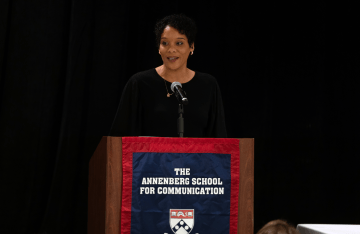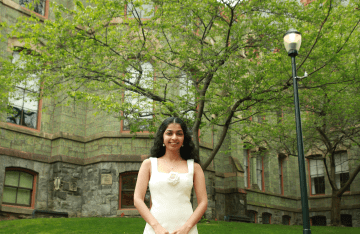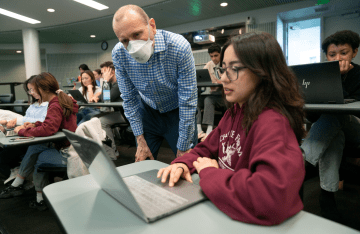Undergraduates Compete to Help Their Classmates Fall Asleep
For their Public Health Communication class, students pitch ideas in a (friendly) “Shark Tank”-style to promote healthy sleep habits on campus.
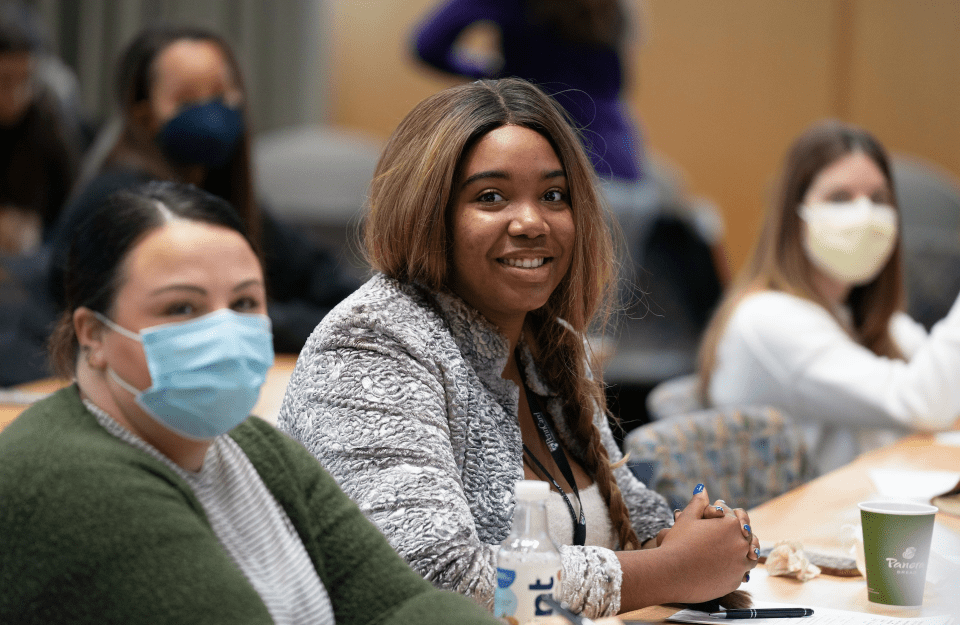
Judges from Wellness at Penn and Philly Counts visited the Annenberg School for Communication to evaluate students' elevator pitches
It’s 10:30 a.m., and four students in Professor Andy Tan’s course “Public Health Communication in the Digital Age” are standing in front of their classmates.
Their slide deck is queued up, a timer is set for 15 minutes, and a panel of judges sit in the front row, ready to evaluate the team’s elevator pitch.
Since the start of the semester, Tan’s students have been preparing for this — a chance to present a unique digital health campaign to Wellness at Penn as part of a “Shark Tank”-style competition.
Although Room 500 at the Annenberg School of Communication isn’t a Hollywood studio and students aren’t trying to bag an investment deal from Mark Cuban, there’s still a lot at stake during these presentations — GPAs, bragging rights, prizes, and the potential to help their fellow students.
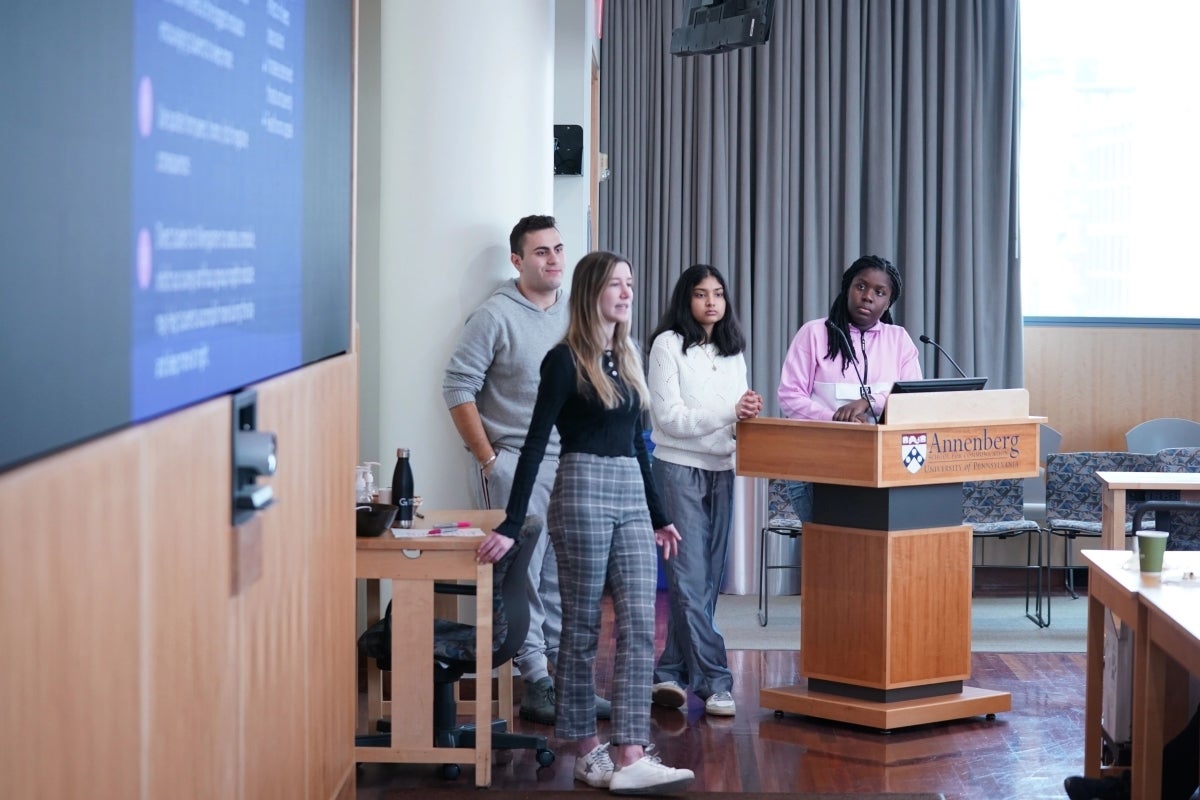
These presentations are the culmination of months-worth of research on how to motivate students at Penn to get more (and better) sleep.
According to the ACHA-National College Health Assessment survey, about 40% of Penn students report that they get less than 7 hours of sleep on weeknights, despite the fact that insufficient sleep can negatively impact grades, memory, mood, and health.
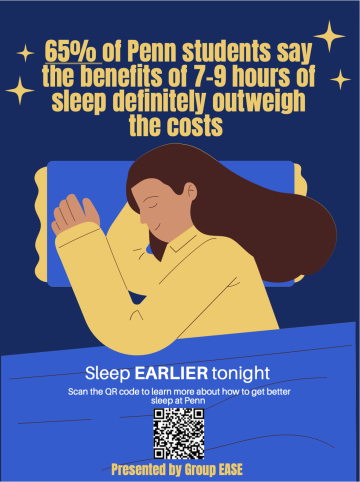
Tan’s students are on a mission to change that.
In teams of four, students used the tools of health communication — behavioral change theories, formative research using focus groups and surveys, logic models, and more — to develop their campaigns. Some teams created Instagram posts and TikToks. Others designed posters and proposed in-person workshops, created text message campaigns and designed plans for on-campus nap pods.
Every team zeroed in on specific habits that encourage better sleep: effective naps, blue-light-blocking products, avoiding caffeine after 3pm, practicing meditation and mindfulness activities, exercising regularly, and developing better time management skills.
Ally Riley (C’24), says this is the first course she’s taken during which she carried out a long-term research project from start to finish.
“Other courses have talked about the research process — qualitative versus quantitative research, focus groups, and surveys, but this class had us complete each step,” she says. “We've been brainstorming our campaign ideas since week one.”
Eight teams presented their campaigns to the judges: three representatives from Wellness at Penn — Mary Kate Coghlan, Imani Williams, and Lauren Cordova — as well as Imani Stewart-Jackson, a digital engagement and communications manager for Philly Counts, an initiative to educate Philadelphians about the COVID-19 vaccine.
Doctoral student Brittany Zulkiewicz, who researches the effects of mass media and social marketing campaigns on health, acted as both timekeeper and the course's TA.
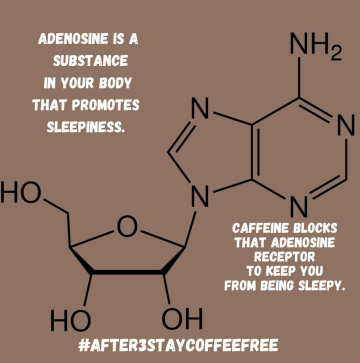
Tan encouraged students to pick team names relevant to their pitches.
Team Sleeping Beauties focused on creating nap pods on campus, while Team Rise and Shine came up with the hashtag #After3StayCoffeeFree. Team 2 AM tackled toxic sleep culture at Penn and Team NAPS created eye-catching graphics to text fun facts to students. The Insomniacs highlighted the benefits of blocking blue light before bed and Team ZZZ created a text message program to remind students to practice good sleeping hygiene. Team Nap @ Penn created storyboards for Instagram Reels and Group EASE created graphics that led to Wellness at Penn’s sleep hygiene course, Refresh.
The competition was fierce, but there could only be one winner — Team ZZZ — whose ambitious text message campaign wowed the judges.
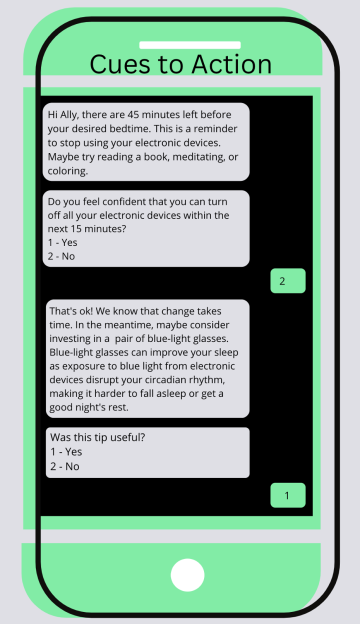
After holding a focus group and distributing a 71-question survey to Penn undergraduates, Team ZZZ decided to create an interactive text campaign to improve sleep hygiene focused on SMART goals — goals that are specific, measurable, attainable, relevant, and time-based.
The goals? Fall asleep in less than 30 minutes, sleep at least seven hours a night four times a week, and report feeling well-rested during the day at least four out of seven days a week.
Through ZZZ’s campaign, students would receive automated text messages that encourage good sleep habits — organized into four “pathways”: mental health, exercise, caffeine consumption, and keeping a nighttime routine.
After opting into texts for a pathway, students would receive texts designed to help them achieve goals related to that pathway.
A student hoping to create a nighttime routine, for example, could opt into nightly texts reminding them to wind down 45-minutes before their desired bedtime. A student wishing to get more exercise could receive a text encouraging them to take a walk or checking in about their exercise plans.
The students behind Team ZZZ and their winning pitch are Jonah Charlton (C’23), a senior studying Communication & Data Analytics; Chloe Hunter (C’23) a senior studying Health & Societies; Rachel Miller (C’24), a junior studying Communication & Political Science; and Ally Riley (C’24) a junior studying Communication & Consumer Psychology.
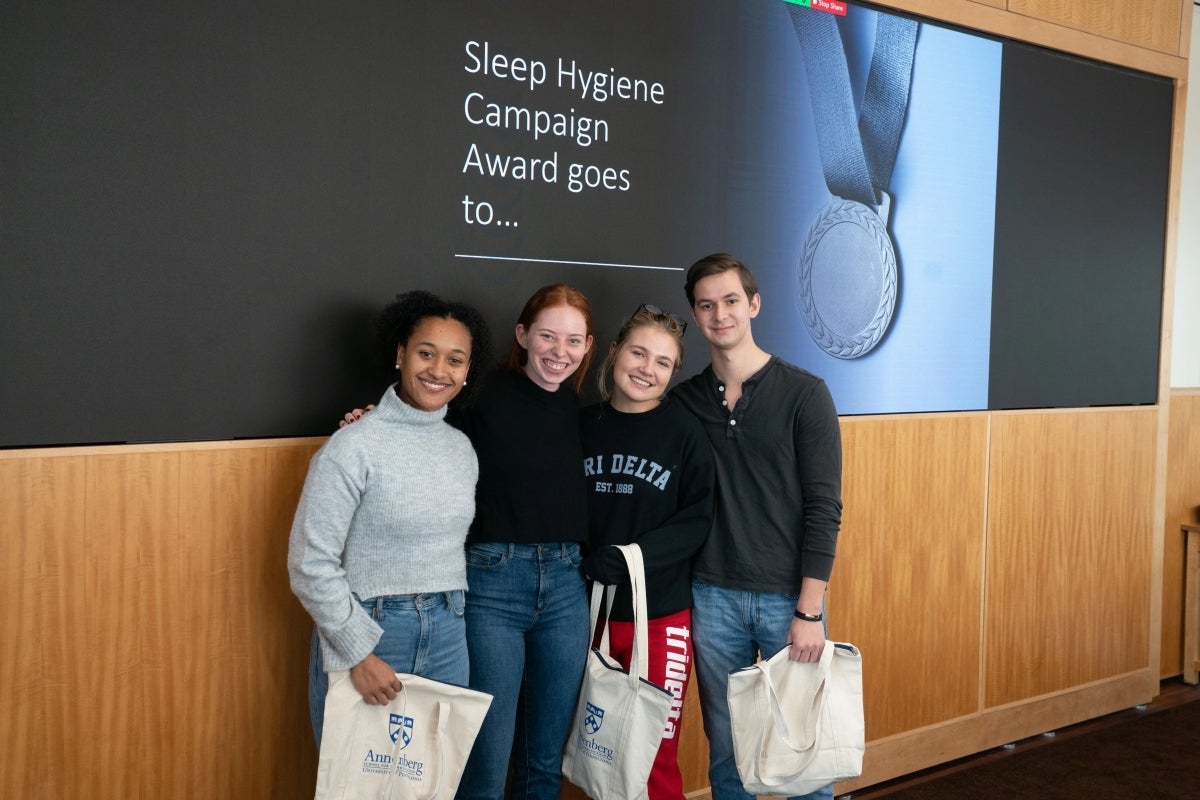
“It's definitely exciting to see something that we've been working toward all semester pay off.” Miller says. “First, for us to complete it and see the final product, and then to get this recognition is awesome.”
Tan says he was impressed by all of the presentations.
“Kudos to all the eight teams for synthesizing what they’ve learnt in class, literature about sleep hygiene, data they gathered from Penn students, their own insights and creativity to develop theory and evidence-informed campaign concepts,” Tan says. “I am really proud of what they have created in a short period of time and look forward to many of their ideas being implemented on campus.”
Congratulations to all of the students!

